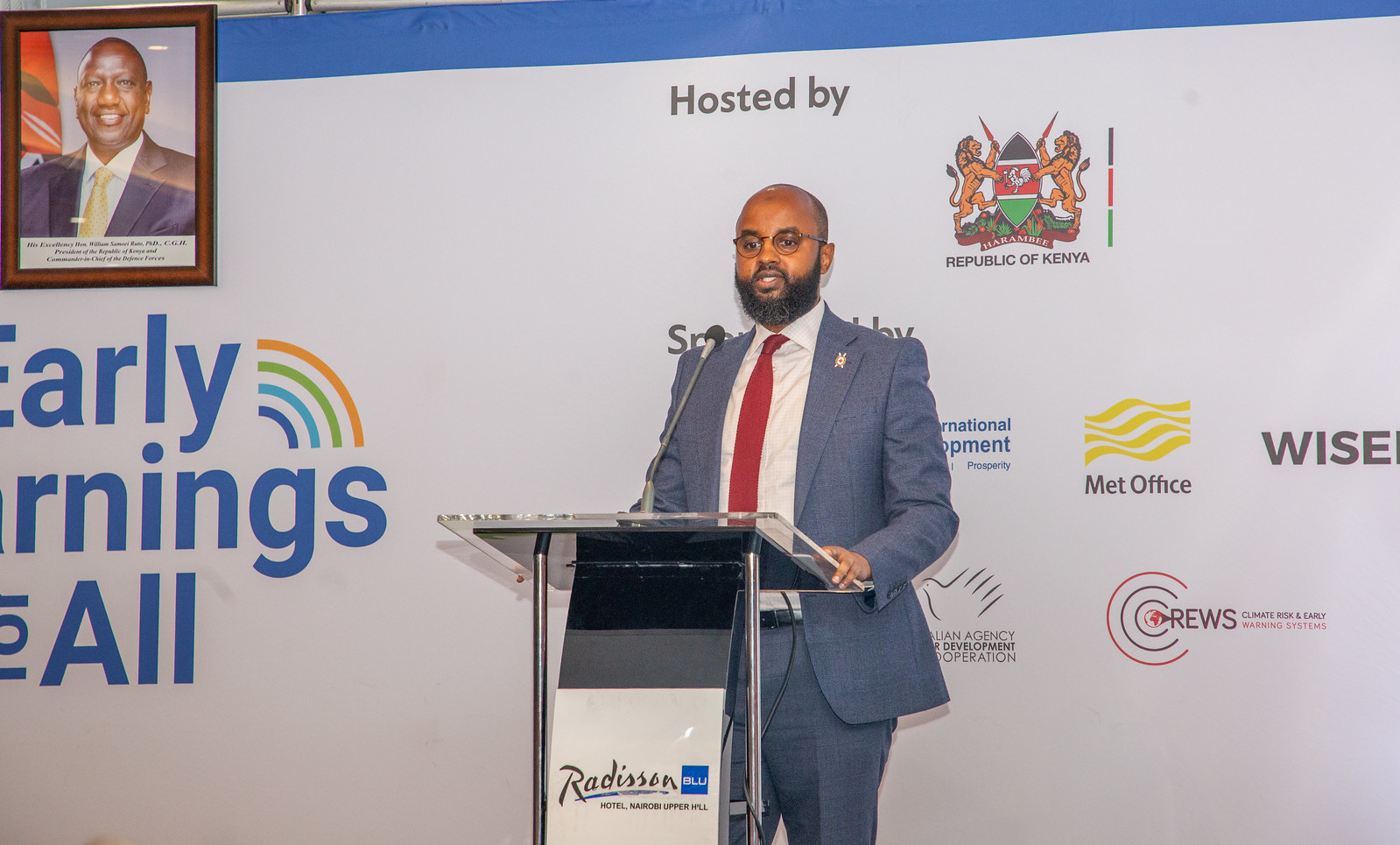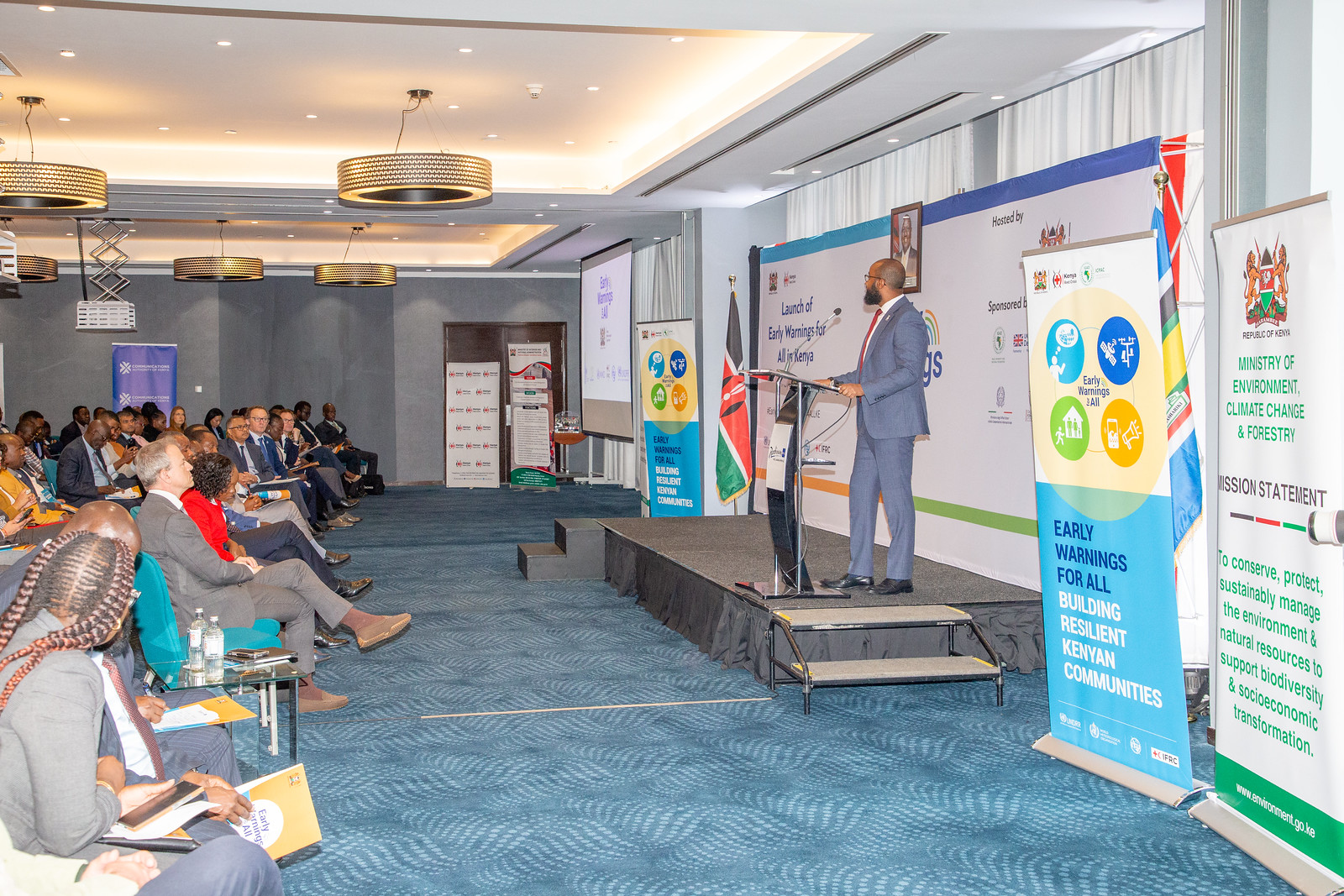
The Kenyan government today, on May 21, 2025, officially launched the Early Warnings for All (EW4All) initiative, a comprehensive national effort to protect citizens from increasingly severe climate-related disasters.
What is 'Early Warnings for All'?
Early Warnings for All is a global initiative launched in 2022 by UN Secretary-General António Guterres.
Its mission is to ensure that by the end of 2027, every person on the planet is protected by life-saving early warning systems.
What’s happening now?
A national workshop is being held in Nairobi from May 21–23, 2025.
The workshop seeks to tailor the United Nations’ ‘Early Warnings for All’ initiative to the risk profile and needs of Kenya.
The workshop brings together national authorities, stakeholders, and international partners to develop an implementation roadmap for expanding the coverage and effectiveness of multi-hazard early warning systems (MHEWS).
The goal of the workshop is to co-create a clear, actionable roadmap that brings together all stakeholders in pursuit of universal early warning coverage across Kenya. When everyone gets the warning, everyone gets a chance to act.
Why Now for Kenya?
The launch comes as Kenya grapples with increasingly severe weather patterns.
Over recent decades, Kenya has faced increasing climate-related disasters, particularly droughts and floods, which have severely impacted communities, especially in the Arid and Semi-Arid Lands (ASAL) regions.
In 2024, the March-April-May floods affected around 410,000 persons, claimed 315 lives and caused damage that amounted to 187 billion Kenyan Shillings (USD 1.5 Billion).
To reduce these disaster losses, Kenya joined the global EW4All initiative in a demonstration of its commitment to saving lives and the country’s hard-fought development gains.
The launch of EW4All in Kenya underscores the urgent need to shift from reactive disaster response to proactive anticipatory action, while ensuring that no one is left behind when disasters strike.
Officially launching the initiative, Environment CS Deborah Barassa stated that “Every Kenyan - regardless of where they live or what language they speak- deserves access to life-saving information before disaster strikes.
"This Initiative will do exactly that. Let us therefore unite, collaborate, engage, and build an Early Warning System in Kenya that will reduce loss of life and livelihoods, bolster food security, and build a more resilient Kenya for generations to come," Deborah said.
The EW4All initiative, originally launched globally by UN Secretary-General António Guterres in 2022, is built on four key pillars.
- Pillar 1:Disaster risk knowledge - systematically collect risk data and undertake risk assessments on hazards and vulnerabilities to improve risk understanding.
- Pillar 2: Observations and Forecasting - develop hazard monitoring and early warning services.
- Pillar 3: Dissemination and communication—Communicate risk information so it reaches all those who need it and is understandable and usable.
- Pillar 4: Preparedness to respond - build national and community response capabilities.
Kenya has already taken significant steps, including developing the Kenya Anticipatory Action Roadmap (2024-2029) and expanding its network of weather observation stations.
The country's commitment was further demonstrated when President William Ruto was named World Meteorological Organisation Champion for the EW4All Initiative in Africa during the 2023 Africa Climate Summit.
To strengthen inclusive early warning in the country, the workshop will provide a platform to coordinate efforts, strengthen disaster governance, and enhance Kenya’s capacity for real-time monitoring and forecasting of natural hazards.
The United Nations Resident Coordinator in Kenya, Dr. Stephen Jackson, reaffirmed the commitment of the United Nations “to support a successful implementation of the initiative” and stressed the importance of the Early Warning Roadmap that will “serve as a strategic guide to drive initiatives at both national and local levels, channel investments towards enhancing Early Warning Systems for more effective Disaster Risk Reduction and facilitate the seamless integration of comprehensive early warning mechanisms.”
Raymond Omollo, Principal Secretary, State Department of Internal Security & National Administration said that over the years, climate-related disasters have continued to slow down the socio-economic progress of communities.
"While these disasters cannot be entirely prevented, we can reduce their impacts through early warning systems and, in turn, save lives and protect livelihoods. Early warning for all is an initiative that provides powerful tools to help communities adapt, and we must invest in strengthening community preparedness. These systems are critical for disaster risk reduction and climate adaptation—delivering timely, accurate information that enables workers, employers, and authorities to act swiftly. To build true resilience, Kenya must shift from a culture of disaster response to one of early action," Omollo said.
Connecting Kenya’s NDCs to Early Warnings
Recently, Kenya submitted its second NDC from January 1, 2031, to December 31, 2035, the fourth country to submit from Africa, joining 19 other countries worldwide that have submitted this to UNFCCC.
“Kenya submitted its second Nationally Determined Contribution (NDC) for the period 2031 – 2035, which is expected to drive transformative economic development and innovation, and inclusive growth across key sectors of its economy," Festus K Ng’eno, Principal Secretary, State Department for Environment and Climate Change said.
According to Ng'eno, a key component of the NDC is strengthening early warning systems to enhance resilience and protect vulnerable communities from the impacts of climate change. This includes improved monitoring and forecasting capabilities, expanded data collection networks and better integration of climate risk information into decision making processes.
"The Early Warnings for All initiative is a groundbreaking effort to ensure that everyone is protected from hazardous weather and climate events through life-saving early warning systems," he said.
As climate risks escalate, early warning systems can mean the difference between safety and tragedy. They help farmers adapt, communities evacuate in time, and authorities plan ahead.
The EW4All initiative is more than just a climate response—it's about equity, resilience, and ensuring that no one is left behind.
 Ahmed Idris, Kenya Red Cross Secretary General, speaking to the audience during the launch of the 'Early Warnings for All' initiative in Nairobi on Wednesday, May 21, 2025.
Ahmed Idris, Kenya Red Cross Secretary General, speaking to the audience during the launch of the 'Early Warnings for All' initiative in Nairobi on Wednesday, May 21, 2025.









